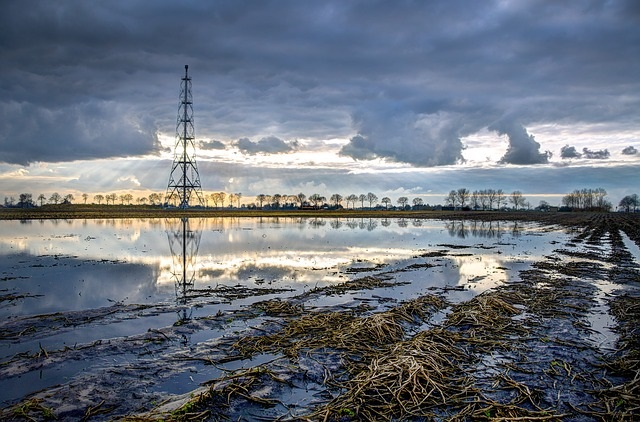Corporate Responsibility
Sustainability in the oil and gas industry 13th February 2019
By Henry Craddock, Director of HC Oilfield and Chemical Consulting
Henry Craddock, Director of HC Oilfield and Chemical Consulting, considers the complexities of sustainability in the oil and gas i
Henry Craddock, Director of HC Oilfield and Chemical Consulting, considers the complexities of sustainability in the oil and gas industry, and suggests that society would do well to use the oil and gas industry as a potential ally in tackling major problems such as climate change.

Sustainability is at the heart of what has been described by some scientists, environmentalists, economists as the “Trilemma”1 – seeking ways forward for society, the economy and the environment that are equitable, acceptable and practical and doing so simultaneously. Resolving this involves reconciling the needs of societies against those of economic development and a rapidly expanding world population. The pressure on resources is becoming ever greater and the environmental damage caused may, insome cases, be irreversible.
Sustainability and sustainable development are often used interchangeably, however, they are different things. Sustainability is an abstract concept of an ideal state of existence in which mankind and nature are in balance. This was defined by Roland Clift2 as:“A state of existence, in which humanities techno-economic skills are deployed, within
long-term ecological constraints imposed by the planet, to provide resources and absorb emissions and to provide the welfare on which human society relies for an acceptable quality of life”.
Sustainable development, however, is the methods and means we employ to move towards this ideal. There are hundreds of definitions of sustainable development but none are universally agreed. Perhaps one of the most famous, robust and objective is in a statement made by Angela Merkel in 1998:3 “…using resources, no faster than they can regenerate themselves and release pollutants to no greater extent than natural resources can assimilate them”.
However, many definitions are at best imprecise and unclear, and do little to help policy makers in guiding them towards more sustainable technologies. In parts of the energy sector the problem is further compounded by the geological timescales required to renew and replenish hydrocarbon fuel stocks, and the polluting effects that their combustion has had. Of course, it is easily argued that it is best to abandon this energy and feedstock source, however, what will replace it to ensure an acceptable quality of life at least in the short to medium term?
Many oil and gas firms do state their desire to act in a sustainable way. The energy giant Shell declared: “Sustainability at Shell is about delivering energy in a responsible way to meet the world’s growing need”.
Undoubtedly this is a laudable aim, however, it could be concluded that such a statement is more about enhancing corporate image than undertaking the hard road to sustainably managing a business and driving an industrial sector to a sustainable future. Currently over 50% of the world energy needs are met by oil and gas supply and the transportation sector consumes around 70-80% of the oil produced.4
The difficult question for the oil and gas industry, and for all of us as consumers of their products, is the timing of its depletion and what will be the energy sources post oil and gas. It is not disputed that oil and gas are depletable resources and by their very nature are not sustainable but is replacing what is used each year is not enough to provide a sustainable future as we have a growing population and growing demand for energy. This means that production capacity must grow, which in turn means discovering new resources. The oil and gas industry has been responding to this challenge for decades and has kept pace in meeting our ever-increasing demand for energy.
As can be seen we are in a situation of very difficult challenges and to add to this the pollution effects of mankind’s activities have placed potentially an unsustainable environmental burden on the earth’s ecosystem. There is now an overwhelming consensus among most scientists that accelerated global temperature rise is inevitable and it’s a question of limiting the damage. However, little concrete action is being taken to reduce greenhouse gas emissions and the bomb keeps ticking. Policy action and its implementation is required.
In the oil and gas sector numerous initiatives have been developed and are been implemented. One example, which exemplifies the core of the problem, is carbon capture.
The process of carbon capture is inherently simple, but it is challenging to engineer and deploy on an industrial scale and needs economic support from governments. There are some examples, particularly in the oil and gas industry, where this has been implemented, such as in Salah, hidden deep in the Sahara Desert some 700 miles south of Algiers. This field is operated by oil and gas giant BP, Norway’s Statoil, and Algerian state oil and gas firm Sonatrach. The field’s gas is about 7% CO2, which must be cut to 2% or less before it can be shipped on to European markets. In Salah the CO2 level is cut to 0.3%, but instead of simply venting the removed CO2, it is pumped into an aquifer below the gas reservoir. Given the scale of the gas flow, it’s the environmental equivalent of taking 200,000 cars off the road. Similar processes have been proposed for chemical industrial concerns where CO2 can be captured chemically prior to storage, however, there are no fully deployed carbon capture plants in the UK and, in November 2015, the UK government cancelled its £1 billion competition for carbon capture and storage (CCS) technology, just six months before it was due to be awarded.
If mankind is to develop and prosper into the 21st century and beyond it needs to urgently tackle the problems of climate change caused by our activities and utilise the oil and gas industry as a potential ally toward a sustainable future rather than an enemy and primary cause of our troubles.
References
1. Winterton N. Chemistry for Sustainable Technologies: A Foundation. RSC Publishing,
Cambridge, UK, 2011.
2. Clift R. Forum on Sustainability, Clean Products and Processes 2000;2:67–70.
3. Merkel A. Science 1998;28:336–7.
4 Alnuaim S. J Petrol Tech 2019;71:10–11.
Author:
Henry Craddock, Director of HC Oilfield and Chemical Consulting, Kirriemuir, Angus, Scotland
T: +44 (0) 1575 572304



